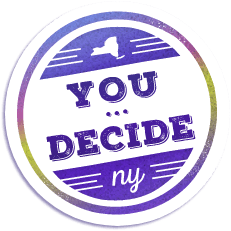In May, the New York Council on Problem Gambling is focusing empowering individuals in need through voluntary self-exclusion. Empowerment is vital for individuals to make the best choices regarding gambling behavior, including youth to decide not to gamble. Therefore, we can all play a part in empowering youth to make their own decision not to avoid gambling behaviors.
Are Youth Really Gambling?
Recent data highlights concerning trends among youth. These include:
- 23% of students reported gambling at least once in the past year (OASAS, 2022).
- 30% of youth who gamble began at age 10 or younger, a rate higher than the initiation of alcohol, tobacco, or marijuana use at that age (OASAS, 2022).
- 85% of youth believe their parents think gambling is wrong, indicating a potential disconnect between parental attitudes and youth behavior (OASAS, 2015).
This information makes it clear: youth are gambling. This also means that those youth who are not gambling are exposed to it. Early intervention and education is vital to prevent the normalization of gambling among young individuals.
What’s The Risk of Youth Gambling?
Early exposure and participation in gambling activities can lead to significant risks for youth and their future adulthood. Problem gambling had a much higher co-morbidity with conduct disorder if it started early in life (Welte, 2011). Therefore, it’s’ important to begin empowering youth at a younger age, and the first step is education.
How Can Peers and Adults Empower Youth?
- Understand the Risks: Educate youth on the potential harms of gambling, including addiction, financial problems, and its impact on mental health.
- Set Personal Boundaries: In advance, discuss ways that youth can resist peer pressure to empower them to make these decisions on their own in stressful social situations.
- Seek Alternatives: Provide and facilitate engaging hobbies and activities that provide excitement and fulfillment without the risks associated with gambling.
How Can We Support Youth Empowerment?
Both influential adults and peers play a much larger role on youth decision-making then they may think. Here are some tips to help empower youth to decide not to gamble, and to reduce youth exposure to gambling.
- Open Communication: Engage in honest discussions about the risks of gambling and the importance of making informed choices. These discussions do not need to be awkward and planned. They can take place during teachable moments.
- Set Clear Expectations: As an adult OR a peer, clearly communicate your values and feelings regarding gambling. Consistent messaging from adults and peers can empower youth and reinforce healthy behaviors.
- Provide Resources: Offer access to educational materials and programs that promote awareness about the dangers of gambling.
- Be a Role Model: Demonstrate responsible behavior and decision-making in your own life. Youth are more likely to emulate positive behaviors they observe in their peers and influential adults.
It is essential to empower youth to make the choice not to engage in gambling. By providing education, open communication, and support, we all can play our part to guide youth toward a gambling-free future. Remember, early discussions can make a significant difference in preventing the onset of gambling-related issues among young individuals.
Is There Help For Youth Struggling with Problem Gambling?
If you find yourself struggling with gambling harm, or if you suspect someone you know is facing such challenges, don’t hesitate to seek help. For 24/7 support, call the NYS OASAS HOPEline at 1-877-846-7369 or text 467369. Or choose your county using our interactive map on our NYProblemGamblingHELP.org HOME PAGE to see the contact information for the Problem Gambling Resource Center (PGRC) in your region.
